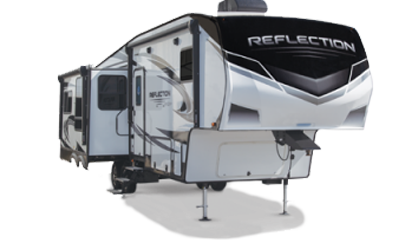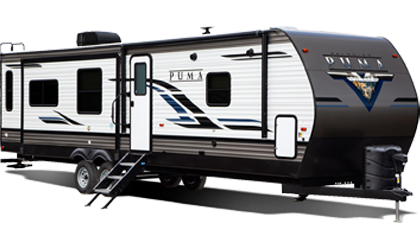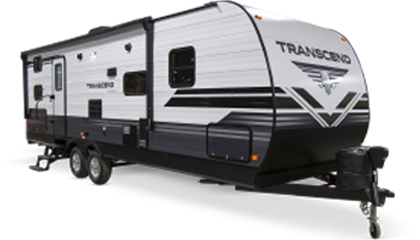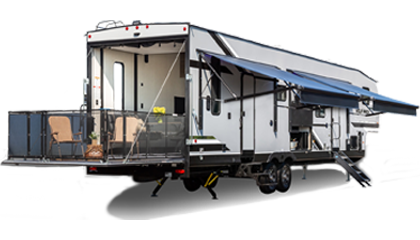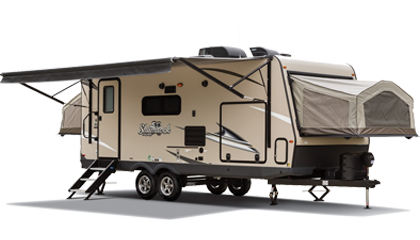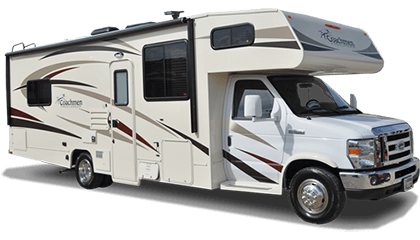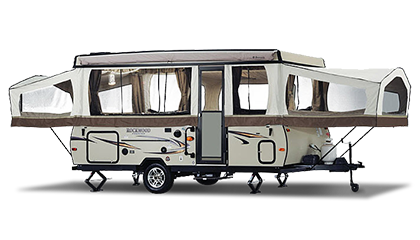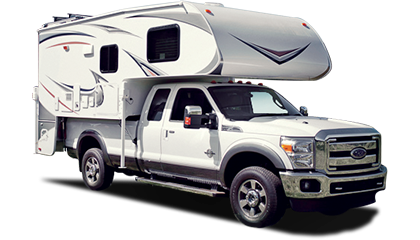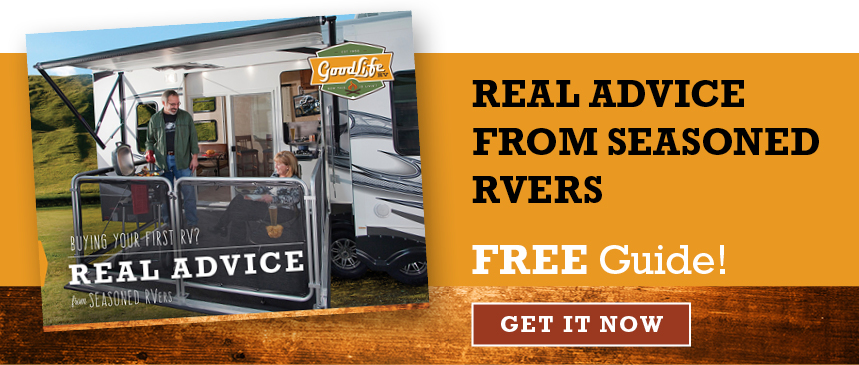What Came First, the Truck or the RV?
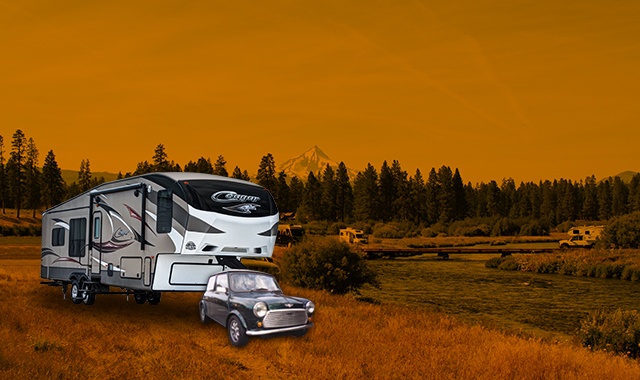
You’ve made up your mind. You’re finally getting that fifth wheeler that you’ve been dreaming of. You showed your buddies the model you want, and the wife and kids are excited to take it on weekend camping trips.The only problem is that sedan in the garage is not powerful enough to haul your new rig. You need some muscle. What are you to do?
You must think about the perfect haulee for your hauler or your hauler won’t be hauling anything at all. OK, you better haul your…..well, you get the idea.
First, you must pick out the RV that you want. Having the RV as the end goal, you can then purchase a truck that is capable of towing your dream RV safely. It is crucial to understand your vehicle’s towing capacity as well as weight distribution basics to enjoy your RV safely. So what comes first, the truck or the camper? Definitely the RV. You must make sure your truck and camper work together properly. To understand which truck would be a good combination with the RV you want, there are a variety of factors you need to consider before making your purchase.
WAIT FOR WEIGHT
Remember, we don’t want to put the horse before the cart- or in this case, the truck before the RV. After you’ve purchased your RV, you must know that your towing vehicle has the capability of hauling your rig. The ratings we list below are what you need to pay attention to. These tow-ratings provide the towing and weight capabilities of your truck and are very important factors when you are determining which trailer you should purchase.
You can find this information on all vehicles listed on the data plate, which is typically located on the inside of the driver’s door frame, on the fuel door or in the glove box.
-Gross Combination Weight Rating (GCWR): The maximum allowable combined mass of a towing vehicle. This includes passengers and cargo, plus the weight of the trailer.
-Gross Vehicle Weight Rating (GVWR): The maximum operating weight of a vehicle that is specified by the manufacturer. This refers to the weight of the entire vehicle without any trailer attached, but includes passengers and cargo.
-Gross Axle Weight Ratings (GAWR): Found on both the trailer and vehicle, this number represents the maximum amount of weight a particular axle can carry, including the wheel and tire.
-Maximum Tow Rating: The manufacturer provided weight limit for towed loads. This number usually includes a hitch weight limit as well, and for fifth wheels, the pin weight is used to the truck’s GVWR and rear axle GAWR.
-Tongue Weight: This number should be somewhere between 10 and 15 percent of the total loaded trailer weight.
BE A MATCHMAKER
When you think you’ve found the RV your heart desires, make sure you take a look at the weight sticker found on the unit. Take this number, and estimate how much cargo you will be adding, while being mindful of the GVWR. After all of this, you will be ready to buy a truck worthy of hauling your new pride and joy!
When you are calculating the weight and towing capacity of your truck and trailer, be sure you are realistic and double check your numbers. It is much better to be safe than sorry when it comes to towing your trailer. Fudging your numbers, or optimistically rounding, could affect your safety.
Now that you know the tow, you are ready to hit the road safely! That must be a big weight off your shoulders. Get ready to haul!

